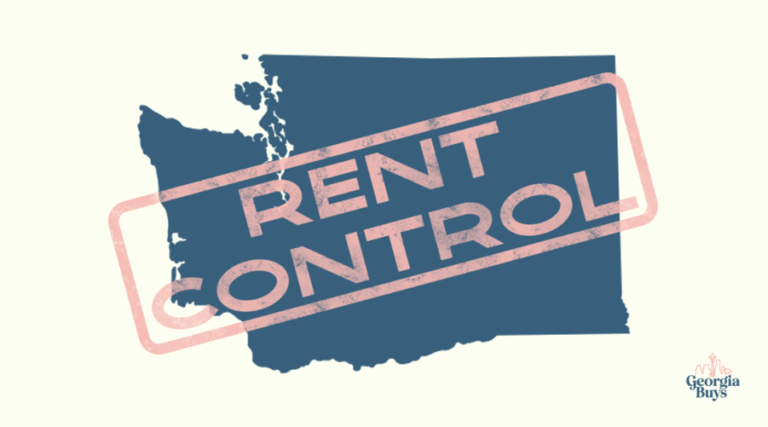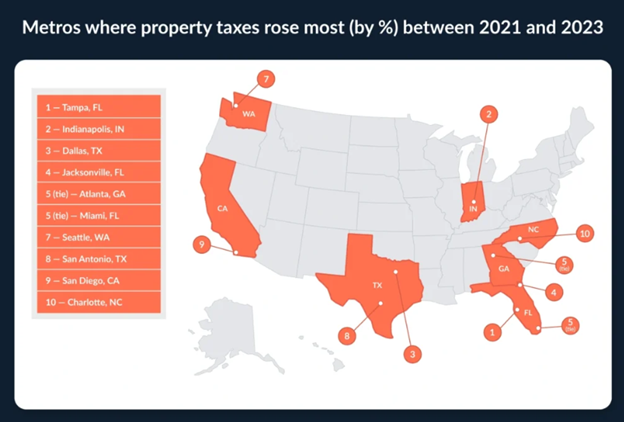
If you own rental property in Washington State, you’ve likely felt the impact of rising property taxes, fluctuating utility costs, and the pressures of maintaining rental properties. As someone who invests in our region, I understand both sides of the rental equation: tenants are seeking stability, while landlords are juggling increasing expenses and ever-evolving legislation.
We recently worked with a landlord who had been renting out her property for years without issue. After welcoming a new set of tenants, things took a difficult turn. Not long into their lease, the tenants decided the rent she was charging was “too much,” and unilaterally chose to pay only a portion of what was owed. She followed the legal steps and began the eviction process, only to have the city intervene and reimburse her for the unpaid amount and, in doing so, effectively enabling the renters to stay without consequence. Emboldened by the city’s support, the tenants stopped paying rent altogether. She had to start the eviction process over from scratch, and it took nearly a year before she was finally able to regain possession of her home. By that point, she was out thousands of dollars, emotionally drained, and ready to walk away from being a landlord altogether.
Stories like hers are becoming more common as shifts in policy place a greater burden on property owners without offering realistic solutions to rising costs.
Now, with House Bill 1217 signed into law, Washington has become one of just three states, including Oregon and California, to implement statewide rent control. While the intent is to provide housing stability, it also places real strain on landlords trying to responsibly manage their properties. And cities like Seattle, Shoreline, and Everett are layering on even more regulation. Let’s take a closer look.
Rent control refers to government-imposed limits on how much landlords can raise rent on residential properties, typically with the goal of preventing price gouging and ensuring affordable housing for tenants. These measures can also include additional regulations on evictions, lease renewals, and tenant rights.
Across the U.S., rent control is most commonly associated with cities like New York City, San Francisco, and Los Angeles, where tight housing markets and rising rents have led to robust tenant protections. More recently, Oregon became the first state to implement statewide rent control in 2019, with California following shortly after.
Now, Washington joins this list, creating a new environment of regulated rental growth that aligns with progressive housing policies but adds financial pressure to the landlords footing the bills.
On May 7, 2025, Governor Bob Ferguson signed House Bill 1217 into law. The bill introduces new limits to rent increases statewide and applies to most residential rentals, including single-family homes and multifamily units.
Key Provisions:
For landlords, this cap may restrict the ability to adjust rents to keep up with rising costs, especially property taxes and insurance premiums that have seen double-digit increases in some parts of the state.
And those increases are not hypothetical. According to a 2024 report from Yahoo Finance, Seattle has the 7th fastest growing property tax rates in the entire country. That means while rent growth is now capped, expenses like taxes, utilities, and maintenance continue to rise unchecked, putting serious pressure on property owners trying to stay afloat.
The math doesn’t lie: if income is limited and expenses are surging, maintaining a rental portfolio becomes increasingly difficult.

While House Bill 1217 establishes a statewide baseline, local governments are not staying idle. Several cities are adding their own layers of tenant protections and rental oversight.
Shoreline: In December 2023, Shoreline passed Ordinance No. 966, expanding protections for renters beyond state law:
More on Shoreline’s Tenant Protections
Everett: While Everett has not passed rent control laws, the city has focused on improving the condition of rental housing through stricter oversight:
These policies don’t restrict rent, but they increase the obligations and responsibilities of rental property owners.
Everett’s Rental Housing Program
Seattle: Seattle’s local rules remain some of the strictest in the state:
From an investor’s standpoint, these new rules create serious operational and financial challenges:
The contradiction here is striking: cities like Seattle are capping rent increases in the name of affordability yet continue to experience some of the steepest property tax increases in the country. Something has to give, and for many small landlords, it may be their long-term ability to hold and manage rental properties.
Learn more about how local officials are reacting to the new rent control measures in our great state:
If you’re feeling overwhelmed, unsure how to respond, or simply ready to cash out before more restrictions arise, that’s where we come in.
At Georgia Buys, we’re not just buying properties, we’re listening to homeowners and landlords navigating change. As someone who has invested in Washington real estate for years, I know how quickly the tides can shift. These policies may help some renters, but they also complicate things for the small-time landlord working hard to do right by their tenants.
If you’re ready to evaluate your options, especially if you own rental housing in cities like Shoreline, Everett, or Seattle, our team is here to talk through what your property is worth and what your next step could be.
One option we help explore is a 1031 exchange, which allows you to defer capital gains taxes by reinvesting proceeds from the sale of your Washington property into another rental property in a state with more landlord-friendly laws, such as Idaho, Utah, or Texas. It can be a strategic way to reposition your investment while maintaining rental income in a more predictable environment.
No pressure. Just a straightforward conversation, with people who understand the nuances of today’s real estate.
Have questions about how rent control impacts your plans? Let’s chat. Georgia Buys is here to help you make the next right move.